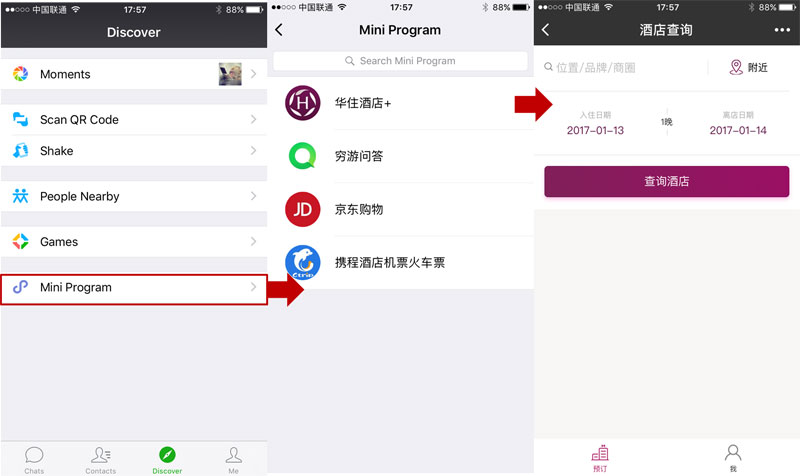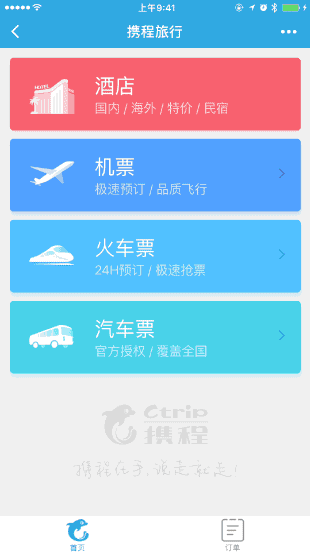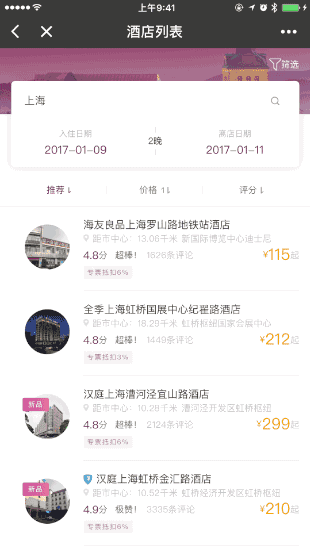After months of internal testing and much hype in the digital and marketing communities, on January 9th Tencent officially launched WeChat’s mini programs.
Also known as Xiaochengxu in Chinese, mini programs have been designed to give WeChat users immediate access to third party services without the trouble of having to download or install any apps. Although Apple explicitly asked Tencent to not use the term “mini apps”, it is easy to see why the term is being used among the tech community: mini programs offer a similar user experience to apps but load much faster and take up very little memory space.
Users can access mini programs by scanning a QR code, by searching for their service name on WeChat, or by clicking on a link shared by friends. Once opened, mini programs will are automatically saved under the mini program folder.

What are some of We Chat’s mini programs limitations for marketing?
Mini programs do not support:
1. Sending messages or notifications to followers
2. Embedding internal or external links
3. Sharing on WeChat Moments
What opportunities will WeChat mini programs bring to travel companies?
1. Low frequency use: According to Tencent mini programs’ advantage is that they can be used “just when you need them”. With less than 1M of memory, mini programs provide a similar experience to native apps, but do not take up as much memory. Ctrip’s app is 114.6MB versus the 1MB of the mini program. Some functionalities such as booking international flights is currently unavailable, but this might change in the near future.
Whilst frequent travellers might still prefer Ctrip’s full-fledged app, the mini program offers a good solution for occasional users, who can retrieve the lighter app at later stages without getting too concerned about wasting space on their smartphones.

2. Lower development cost: Mini programs offer cheaper development costs, potentially making it financially viable for smaller travel companies such as independent hotels, attractions.
3. Offline to Online: Travel companies with walk in customers such as hotels and attractions can leverage mini programs to guarantee customers a better offline experience. Chinese hotel group Huazhu has been one of the first hotels to launch a mini program. Initially designed for online bookings, the platform will soon support online payments, room selection, room service and more.

4. Monetization opportunity for content focused accounts: Subscription accounts with a strong focus on content such as travel review sites Qyer or Mafengwo, can now leverage mini programs to sell travel products on WeChat.
5. Enhance navigation experience: Until now brands have used service accounts to provide services to followers. With links to HTML5 or external website pages, service accounts paths to functionalities can be longer and less flexible than those designed for mini programs.
What’s next?
The launch of mini programs fits in with Tencent’s overall strategy to increase the average time spent on the platform, effectively providing an alternative to the Apple Store. Whilst it is still early days, mini programs have the potential to become an additional valuable marketing tool for brands in engaging with customers.
Suscríbase a nuestro boletín gratuito para mantenerse al tanto de las últimas noticias
NO COMPARTIMOS SU INFORMACIÓN CON TERCEROS. CONSULTE NUESTRA POLÍTICA DE PRIVACIDAD.
This website or its third party tools use cookies, which are necessary to its functioning and required to achieve the purposes illustrated in the cookie policy. If you want to know more or withdraw your consent to all or some of the cookies, please refer to the cookie policy. By closing this banner, scrolling this page, clicking a link or continuing to browse otherwise, you agree to the use of cookies.